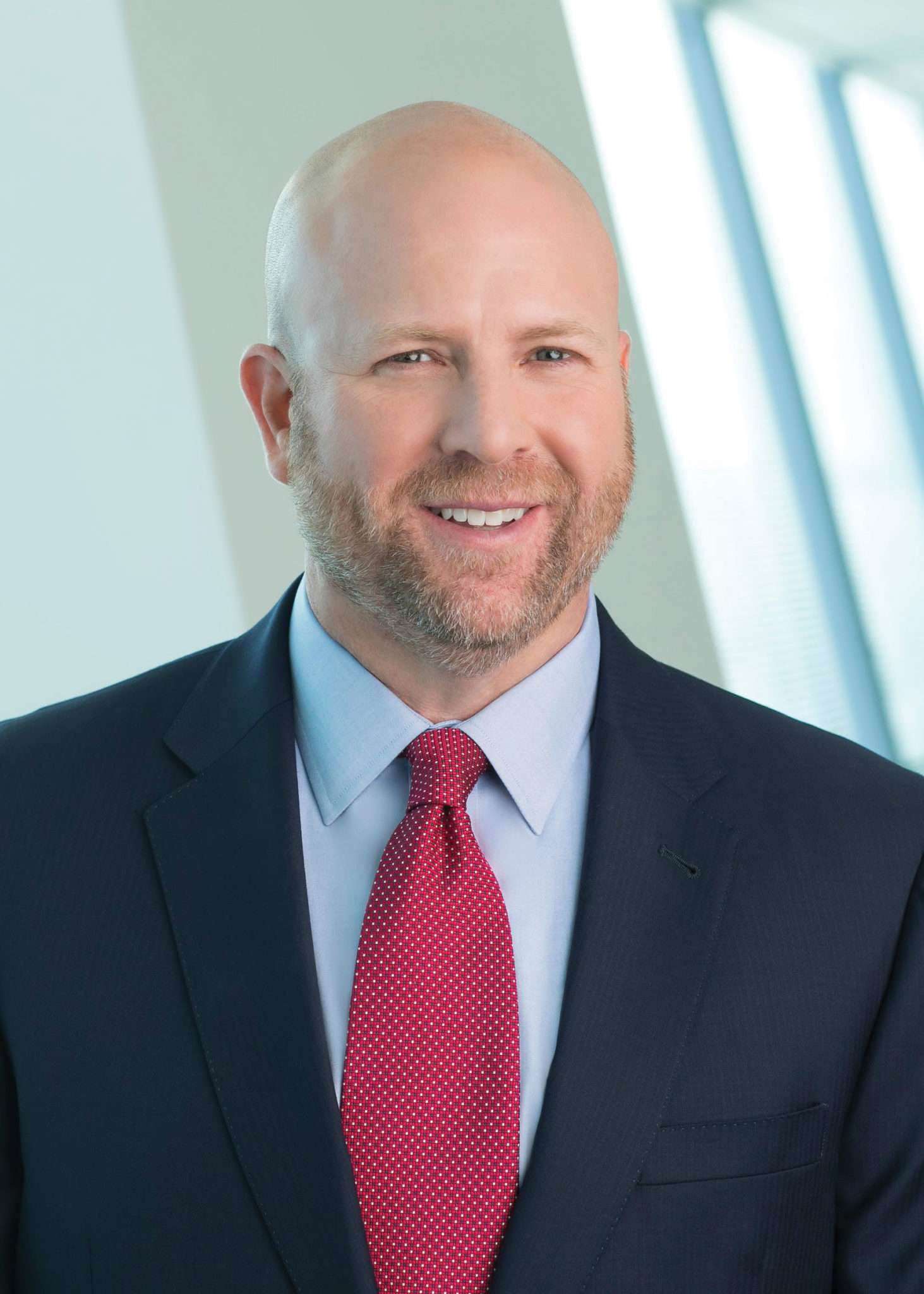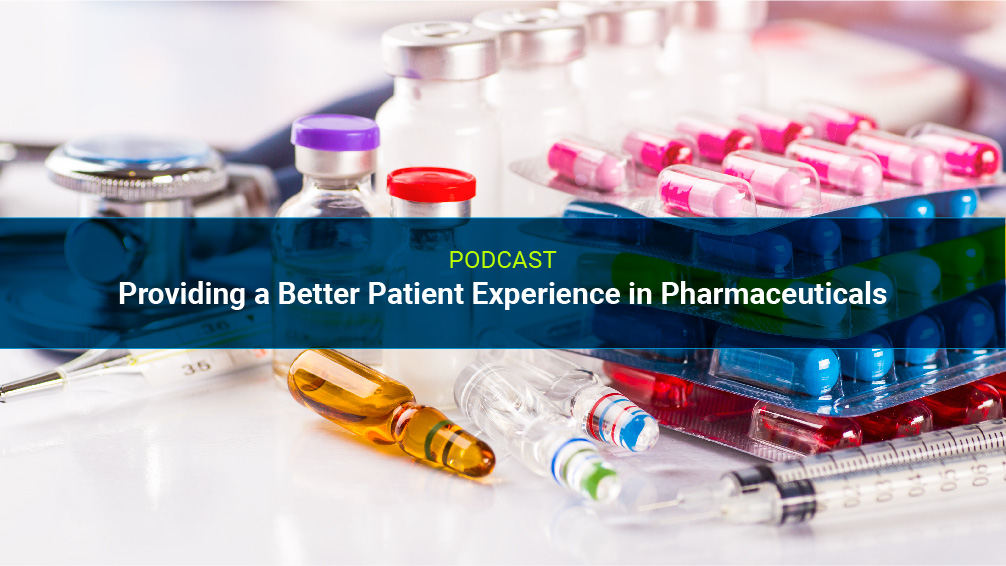[PODCAST] Providing a Better Patient Experience in Pharmaceuticals

Doug Noland, Head of Patient Experience at Astellas
If you’ve listened to our podcast before, you probably know that I love talking to other thought leaders and experts about patient experience. For today’s podcast, I thought I’d take a fun departure from what we usually do and speak to an expert about patient experience in pharmaceuticals.
I spoke with Doug Noland, head of Patient Experience for Astellas, about a shift in the landscape with regards to patient experience. There’s a disturbance in the force. Things are changing on the pharma side, and it’s all positive—for patients, providers, and the pharmaceutical industry alike.
Keep reading for my insights or listen to our podcast interview below.
Patient Experience in Pharmaceuticals and at Astellas
Noland’s role as head of Patient Experience at Astellas, he says, “is to drive a cultural shift and as well a strategic shift to ensure that we’re actually delivering even more value to patients than we have historically through the medicines that we develop and bring to market.” This job is not only new for Astellas, but for much of the pharmaceutical industry.
After he was asked to help ensure that Astellas was delivering value to patients, Noland spoke with several C-level executives of health systems. And what he learned is that patient experience was a top priority—a concept that was still new to pharma.
“So, that’s really what got us going down this path. Ultimately, our mutual friend came into the picture, Jim Merlino…We sought him out and said, ‘Hey, look, we’re hearing all this about patient experience. We want to know, how well are we doing? It’s a part of our vision to serve patients and be patient-focused.”
That initial assessment from Jim Merlino is what really launched this new goal for Astellas and a new way of thinking about pharmaceuticals and patient experience.
How Does Pharma Compare with the Rest of Healthcare?
On the provider side, patient experience has been a priority for quite some years. In terms of patient experience, it’s tough to compare how hospitals and health systems do vs. the pharmaceutical industry.
“For pharma,” says Noland, “it’s pretty different in the sense that it’s a rarity if we meet a patient or actually talk firsthand to patients. At least historically that’s been the case. Because we’re so far removed from kind of the frontline process.”
Having that in-person contact with patients has put providers further along in terms of providing patient-centric experiences. But pharma is beginning to make some strides—at least those companies that have started to look at patient experience as a long-term strategy.
“I think as an industry it’s really mixed,” says Noland. “There’s some companies that are more at the forefront that are making big cultural and strategic shifts, making the associated investments. And they get it, and they see the potential for what this can be. And there are yet others that still have this positioned as a kind of a warm and fuzzy nice thing to do, to you know talk to patients and understand what matters to them.”
Patient experience is, unfortunately, just the flavor of the month for some of these companies. But many, like Astellas, are beginning to examine the long-term implications of providing a better patient experience—which can only help the industry.
Incentive to Change in Pharmaceutical Marketing
So why should pharmaceutical companies make the shift towards more patient-centric cultures and strategies? A lot of that has to do with the conversation around the topic of pharma and healthcare in general.
See also: Pharmaceutical Marketing from Healthcare Success
Of course, a lot of conversation in the US lately has been about the high cost of healthcare and the “unsustainable cost structure of healthcare in general.” Besides that, he says, “Patients are becoming much more empowered. They’re becoming more cost-conscious. There’s more formulary competition around pricing with payers. And then we’re even seeing regulators now and the FDA, in particular, changing standards and setting an expectation that we incorporate more of the patient voice.”
There’s more awareness of the need for patient experience and there are now several incentives tied to improving it. Quality of patient experience can offer pharma companies a competitive advantage. But more importantly, says Noland, it’s the right thing to do.
“There’s a right thing to do, to engage with patients, to understand their needs, and ensure that everything we’re doing to develop medicines and to bring them to market is reflective of the biggest priorities for patients.”
Steps Towards a Better Patient Experience
In the pharmaceutical industry, the first step towards providing a better patient experience is getting leadership alignment and endorsement. So the team’s first step was to help leadership see that providing better experiences ultimately factors into their business goals.
From there, the team at Astellas started to look at factors that impact patient experience—even something as seemingly simple as a phone number. Pharmaceuticals often have a separate 1-800 number for things like general information, medical inquiries, and pharmacovigilance.
With several different products, the 1-800 numbers can really add up. It’s an industry norm to have 60, 70, or even hundreds of 1-800 numbers. However, that makes it really difficult for the average person to figure out which number to call. Simplifying the phone trees and providing empathy training to anyone who answers the phone helped to significantly improve customer service.
Another issue in patient experience for pharma had to do with health literacy. While the product literature, consent forms for clinical trials, etc. certainly complied to standards and communicated the right information, it was sometimes well above the reading level of the average American.
“We’ve had a chance to go back, revisit that, and develop easy to read, easy to understand materials that resonate with patients,” Noland says. And it resonated with employees as well, who could now see how easy-to-read materials fit into Astella’s business goals.
Ultimately, says Noland, “The work more than paid for itself, so it was the right thing to do and it was also good for business.”
The Future of Patient Experience
Noland says that for Astellas, patient-centered innovation is a “mainstay strategy.” His team is even beginning to collaborate with various provider organizations to make the overall experience even stronger.
He says, “We’re also beginning to work with provider organizations and in some cases payers on truly collaborative efforts to improve patient experiences and outcomes. At least in our position, we feel like we can’t work in our own silo, our own vertical, to solve for better patient experiences and outcomes. Why would we not work with people in the frontlines of care provision?”
His prediction for the future of patient experience in pharmaceuticals: “We’re going to see more patient-centered clinical trials where we’re bringing the patient perspective into the way we develop drug compounds, really listening to their voice. Almost like the provider organizations are using a PFAC or patient family advisory council—doing more and more of that.”
Working together for better overall healthcare experiences benefits patients and healthcare organizations alike. By improving processes and creating a more patient-centric product, the pharmaceutical industry stands to benefit while continuing to help patients get the care they need. After all, it’s the right thing to do.
To learn more about patient experience and marketing capabilities, see our sister company AriaAgency.com.
Take the next step with your digital marketing and partner with Healthcare Success and our industry-specific pharmaceutical SEO team.
Related Articles:
6 Simple Ways to Improve Patient Experience
Best of 2021: 14 Insights from Healthcare Marketing Experts
10 Top Posts: Putting Patient Experience At The Heart of It All









